Posted on 3/28/2025
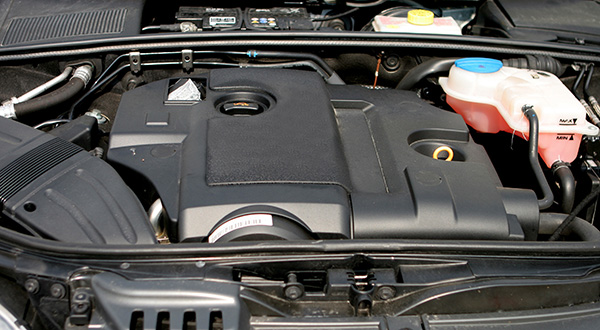
A rough idle can be frustrating, especially when you’re stopped at a red light or waiting in a parking lot. Instead of a steady, smooth hum, your engine may sputter, shake, or even feel like it’s about to stall. There are many possible causes of rough idling, from minor issues to more serious engine problems. Understanding why it’s happening can help you figure out if it’s something simple or if you need professional repair. Common Causes of a Rough Idle A rough idle can stem from several different issues, ranging from fuel system problems to worn-out engine components. Some of the most common causes include: Dirty or Faulty Spark Plugs Spark plugs ignite the air-fuel mixture in your engine’s cylinders. Over time, they can become dirty, worn out, or misfiring, which leads to uneven combustion. This can cause your engine to shake or stumble when idling. If your vehicle hasn’t had a tune-up in a while, replacing the ... read more
Posted on 2/28/2025
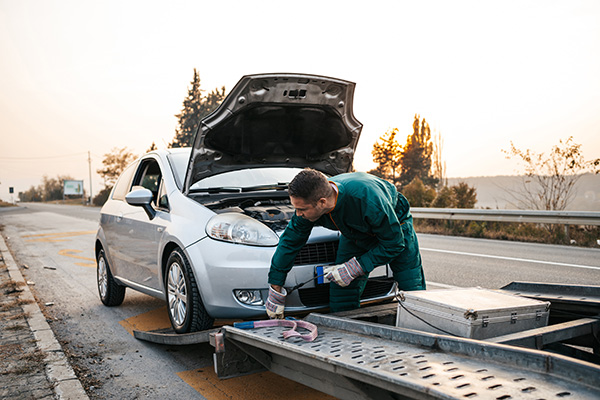
Car trouble always seems to happen at the worst possible time. Maybe you're running late for work, heading out on a long drive, or just trying to get through your day when—bam!—your car won’t start, or something starts making an unusual noise. While some breakdowns happen without warning, many can be prevented with the right maintenance and care. Keeping your car in good shape doesn’t just save you from unexpected repairs—it also makes your vehicle safer and more reliable. So, what can you do to avoid being stranded on the side of the road? Stay on Top of Regular Oil Changes Oil is the lifeblood of your engine. It lubricates moving parts, reduces friction, and helps regulate temperature. When oil gets dirty or runs low, it loses its ability to protect your engine, leading to excessive wear and potential breakdowns. Every car has a recommended oil change interval, usually found in the owner’s manual. While older vehicles needed ... read more
Posted on 1/31/2025

Have you ever wondered about the legal boundaries for exhaust noise levels in Iowa? With strict state laws and even stricter local ordinances, understanding what’s allowed can save you from fines or penalties. Whether you’re a car enthusiast tweaking your vehicle’s exhaust system or simply curious about the regulations, knowing the rules is key. Iowa's Statewide Exhaust Noise Regulations Iowa law mandates that all motor vehicles must have a muffler in good working order, continuously operating to prevent excessive or unusual noise. It’s not just about being courteous on the road—it’s the law. According to Iowa Code 321.436, it’s illegal to use muffler cut-outs, bypasses, or similar devices that amplify exhaust noise on highways. Specific Noise Limits by Vehicle Type The state has established measurable limit ... read more
Posted on 12/20/2024
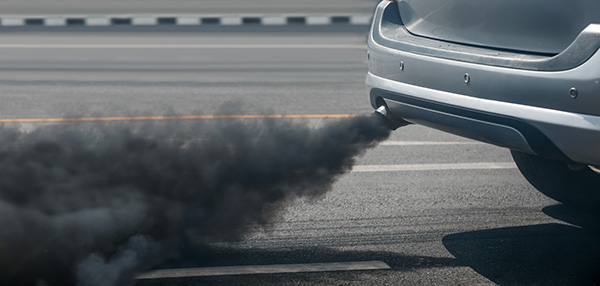
Your car’s exhaust system isn’t just keeping things quiet. It plays a crucial role in reducing harmful emissions and maintaining engine efficiency. When your exhaust isn’t functioning properly, it can lead to performance issues, safety concerns, and even legal trouble if emissions exceed acceptable levels. But how can you tell if your exhaust system needs attention? What Does the Exhaust System Do Your car’s exhaust system safely directs harmful gasses away from the engine and cabin while minimizing noise and pollution. It consists of several components, including the exhaust manifold, catalytic converter, muffler, and tailpipe, all working together to ensure your car runs efficiently and stays eco-friendly. If any part of this system fails, you might notice a drop in engine performance, odd smells, or even loud noises from your car. Addressing these issues early can save you from expensive repairs and keep your vehicle running reliably ... read more
Posted on 11/29/2024
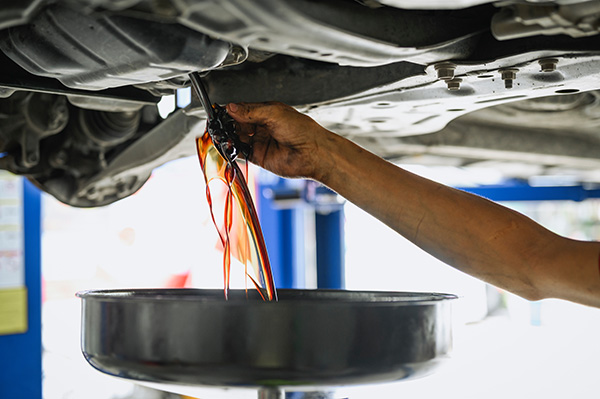
Changing your car’s oil might seem like a simple maintenance task, but it’s one of the most important things you can do to keep your engine healthy. The motor oil lubricates its moving parts, reduces friction, and keeps everything cool. But here’s the often-asked question: How often should you change your car's oil? The Traditional 3,000-Mile Rule: Is It Still Relevant You’ve probably heard the old rule of thumb: change your car’s oil every 3,000 miles. While this advice was solid decades ago, modern engines and advances in oil technology have changed the game. Today, many manufacturers recommend changing the oil every 5,000 to 7,500 miles, and some even stretch it to 10,000 miles, depending on the type of oil and the vehicle. So, what’s the takeaway here? If your car’s manual suggests a longer interval, you’re likely safe to follow it. However, this doesn’t mean you can skip regular checks. If you’re u ... read more
Posted on 10/31/2024
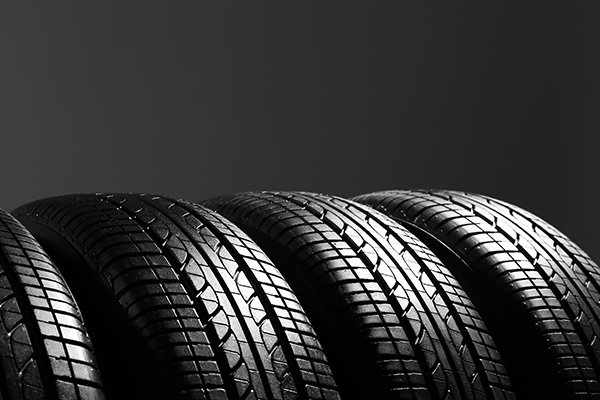
When it comes to vehicle maintenance, tires play a crucial role in the safety, performance, and efficiency of your car. They’re the only part of your vehicle that touches the road, which means they’re responsible for a lot: handling, braking, fuel economy, and even comfort. If your tires are starting to wear out, you might wonder whether replacing all four tires at once is necessary or if you can get away with just replacing one or two. Maintaining Even Wear and Tear One of the most significant advantages of replacing your tires in sets is ensuring even wear across all four tires. Tires wear down at different rates based on factors like driving habits, road conditions, and wheel alignment. When you only replace one or two tires, the new ones will have deeper tread compared to the older ones. This creates an imbalance in grip, particularly dur ... read more
Posted on 9/27/2024
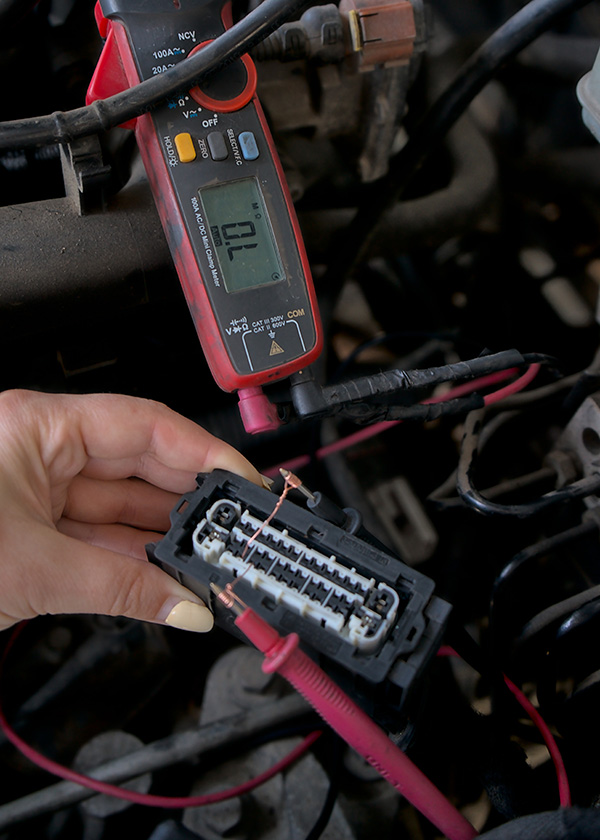
Your car’s electrical system is a complex network of wires, relays, and fuses that work together to ensure your vehicle functions as it should. But when something goes wrong, it can cause a range of issues, from a simple inconvenience to a serious safety hazard. Many drivers overlook electrical problems, but being proactive can save you time and money in the long run. 1. Dead or Dying Battery The battery is the heart of your car’s electrical system, providing the necessary power to start the engine and keep accessories running. One of the most common electrical problems is a dead or weak battery, often due to age, leaving lights on, or extreme temperatures. How to fix it: Start by checking the battery terminals for corrosion. If you spot white or greenish deposits, clean them with a brush and a mixture of baking soda and water. If your car still won't start, you may need a jumpstart. If the battery continues to die frequently, it&rsq ... read more
Posted on 8/30/2024
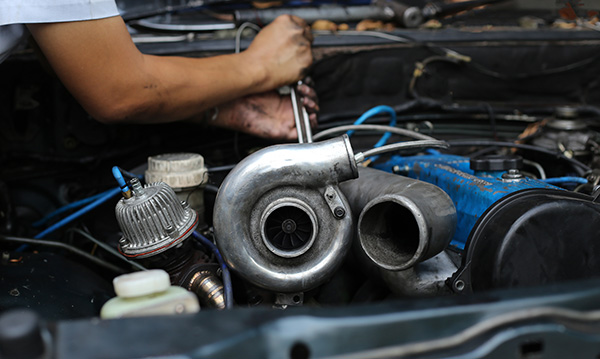
Turbochargers have revolutionized the way we experience driving, providing impressive power and efficiency. However, like all mechanical components, they are not immune to wear and tear. Identifying the early signs of turbocharger failure can save you from major repairs and ensure your vehicle performs optimally. But how do you know when your turbocharger is on its last legs? Here are five common signs to watch out for. 1. Noticeable Power Loss One of the most apparent signs of a failing turbocharger is a noticeable drop in power. If your car isn't accelerating as it used to, or it feels sluggish, your turbo might not be delivering the required boost. This power loss happens because the turbocharger is no longer able to compress enough air into the engine. This issue is particularly noticeable when driving uphill or trying to overtake another vehicle ... read more
Posted on 7/26/2024
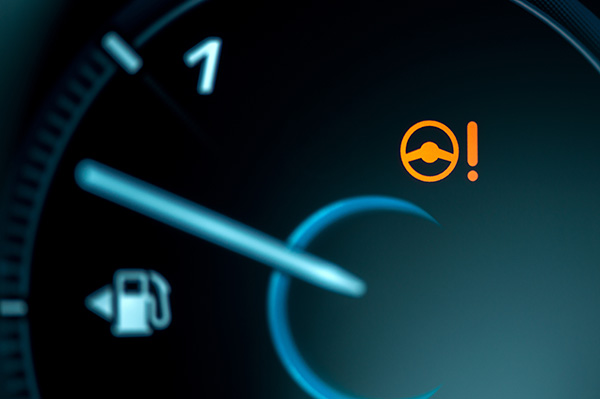
When it comes to vehicle maintenance, certain components often receive more attention than others. We diligently change our oil, check our tires, and ensure our brakes are in good working order. But how often do we think about our steering system? Neglecting steering components can have serious safety implications. We will explain why maintaining your steering system is required for your safety and the overall performance of your vehicle. What Happens When Steering Components Are Neglected?Reduced Steering Response One of the first signs of neglected steering components is a reduction in steering response. If your car does not respond immediately or accurately to your steering inputs, it can be challenging to maintain control, especially at higher speeds or during emergency maneuvers. Worn or damaged components such as tie rods or a failing power steering pump c ... read more
Posted on 6/28/2024
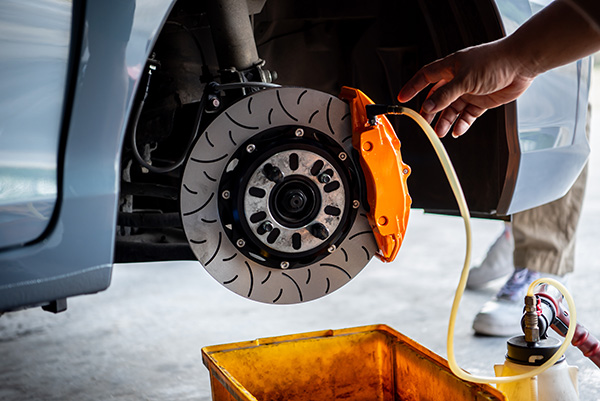
When it comes to your vehicle's safety, brakes are the most crucial component. But what happens when there's air in your brake system? Is it really that dangerous? Let's look into the nitty-gritty and find out why this seemingly small issue can have serious consequences. The Basics of the Brake System Your car's brake system is an intricate network designed to bring your vehicle to a halt safely and efficiently. It operates on hydraulic pressure, where brake fluid transmits the force from your brake pedal to the brake pads, which then clamp down on the rotors to stop your car. This process should be seamless, but introducing air into the system can throw a wrench in the works. How Air Gets into the Brake SystemPoor Maintenance: Failing to regularly check and maintain your brake fluid can lead to air seeping into the system. Leaks ... read more